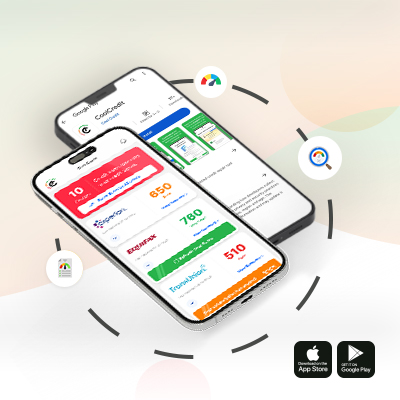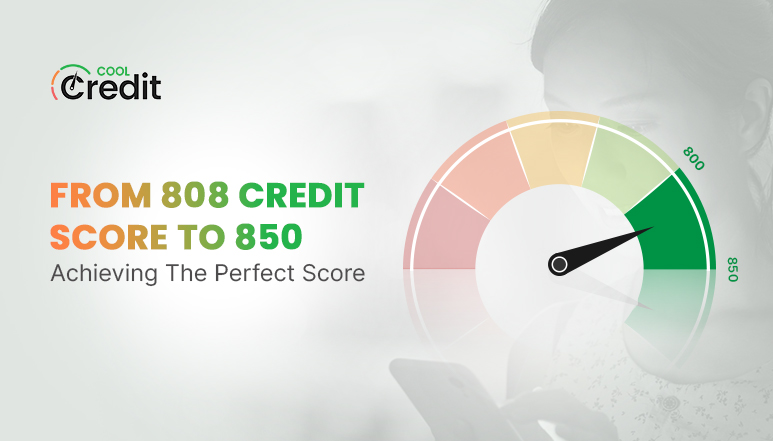
How To Remove Charge-Off From Your Credit Report?
To remove a valid charge-off from your credit reports you can attempt to negotiate with your lender or debt collector. If your account is still intact and it hasn’t been sold by the lender, its best to clear the debt you owe in exchange for the charge-off that needs to be removed from your reports. However, please keep in mind that removing a legitimate charge-off on your credit report can be a challenging pursuit.
Understandably, sometimes you may be unable to keep up with all the bills and miss a deadline or two. However, a past-due payment that remains unpaid for 4 weeks or longer can be highly detrimental to your credit scores. So, if you find a charge-off on your credit report, it's crucial to act quickly and take the necessary steps to avoid further damage to your credit score.
What Does It Mean To Have A Charge Off On Your Credit Record?
| A charge-off is an unpaid debt (i.e. 120–180 days overdue) that is regarded as uncollectable by the creditor and written off as a loss. It’s one of the highly negative items on your credit report that can knock off 50 to 150 points for a single charge-off. |
A charge-off usually occurs when you are delinquent on payment for several months. For instance, if you don’t pay your credit card bill for 4-5 months and it becomes a delinquent account, a credit card charge-off will appear on your credit report. This usually has long-term consequences and may take years to improve your credit standing. When a provider considers the debt “uncollectable” and writes it off as a loss, this does not free you from the obligation. Rather, they will most likely transfer your account to a third-party collection agency, and that record may appear twice on your credit report.
How Do Charge-Offs Impact Your Credit Standing?
Having a charge off on your credit report can be a big red flag for potential lenders. It signals that you are not a reliable borrower with a history of unpaid debt. Hence, it can lower your scores as well as your chances of obtaining new credit lines. Additionally, you may also be required to pay higher interest rates on any new loans you may want to take out.
| Did You Know? A charge-off can stay on your credit report for over 7 years, even if you have paid it off. |
Impact Of Paid Vs. Unpaid Charge Off On Your Credit Report
Having a paid or unpaid charge-off can impact your credit scores in the same way. However, an unpaid charge-off is viewed more negatively, making it much more difficult to obtain new credit.
A “paid” charge-off can reassure the lender regarding your repayment history. However, the longer it takes to pay off the unpaid balance, the lower the creditor perceives your creditworthiness.
This is because lenders view charge-offs as a risk, and they may be less likely to loan money to someone who has this type of credit history. Additionally, they may be more likely to charge higher interest rates to make up for the risk of default.
Empower Your Credit Journey: Seamlessly Repair and Monitor with AI Take Charge Today
Learn HowHow To Remove Charge-Off From Your Credit Report?
Here are different methods to counter a charge-off on your credit report.
1. For An Incorrect Charge-Off: Submit A Dispute Letter
For an incorrect charge-off, you will need to submit a dispute letter to the credit bureau, and they will confirm the accuracy of your claim and correct the error (if proven). In such a situation, the ready-to-use dispute letter templates available in the CoolCredit App might come in handy. These save you from the hassle of drafting a letter of dispute from scratch. Also, make sure to attach the supporting documents as evidence to strengthen your chances of winning.
2. For A Legitimate Charge-Off: Negotiate “Pay For Delete”
If the charge-off is not an error and it's due to an unpaid debt, in that case, you can try to reach out to the original creditor and discuss a “Pay For Delete” arrangement. This type of agreement would require you to pay the unpaid portion of the debt to the creditor, and in exchange, they would provide an update to the credit bureau to report your charge-off as "paid”.
3. For A Charge Off By A Collections Agency: Negotiate With The Debt Collector
If your account has been handed over to the collection agency, you may need to approach the collection officer to negotiate a pay-off agreement. In such situations, the collectors usually require the full amount to be repaid before reporting to the credit bureau.
4. For An Exceptional Case: Consult With A Credit Expert
In exceptional circumstances, you may want to consult with a professional credit expert and look at legal options. If you win the case, the charge-off will be removed from your credit report, though recovering your credit scores may take some time.
It is a good idea to continually monitor your credit scores to prevent similar occurrences. However, it does not mean that you need to send a credit report request from the bureau each month. Instead, you can use the CoolCredit- credit repair app to instantly access your credit reports across the 3 major credit bureaus.
The AI-assisted app provides valuable insights into any negative items that may be lowering your scores along with actionable tips to fix the issue.
Redefine Your Financial Future: Tap into CoolCredit's AI Credit Repair App Now!
InstallConclusion
If you are on your way to making smarter financial decisions, it's crucial to deal with issues like credit card charge-offs head-on. The CoolCredit - AI credit repair is a valuable tool for addressing charge-offs. It can help analyze your credit report, identify any illegitimate, or incorrect charge-offs, and offer ready-to-use dispute letter templates to remedy the issue.
Q: What Is A Charge-Off?
A: A charge-off is an unpaid debt on which the creditor has given up their collection efforts. They may usually hand over such accounts to collections, which means you may need to deal with a third-party collector.
Q: How Much Do Charge-Offs Impact Your Credit Standing?
A: As a result of a charge-off, your credit scores can take a big hit, and not just once. From the first month when you default, your score can drop 100 points. For every 30-day late payment, your scores may take a further plunge of 50–150 points.
Q: How To Remove A Charge-Off Without Paying?
A: It is possible in cases where you have an inaccurate or wrong charge-off in your credit report. For this, you need to raise a dispute and attach proof to support your claim. However, for a legitimate charge-off even if you pay off the charge-off it can stay on your report for up to 7 years.
Q: Can A Credit Repair App Like CoolCredit Help Remove Charge-Offs?
A: Yes, it can be highly beneficial. It has readily available dispute letter templates, well-crafted to maximize the chances of success. These reduce the time and hassle of writing one from scratch. It can help guide you step-by-step on how to dispute a charge-off. It also helps track your credit score and monitor your credit report for any changes.
Q: When Removing A Charge-Off Isn’t Possible?
A: In the following cases, it may not be possible to remove the charge-off:
- A legitimate charge-off that remains unpaid.
- A paid charge-off remains on the credit report for 7 years and cannot be removed early even if the debt is paid off.
- If the charge-off is due to a debt that is pending legal proceedings and requires official judgment or bankruptcy declaration.
- Very old charge-offs cannot be removed by paying off.
Q: What If The Charge-Off Is Inaccurate?
A: If you notice an inaccurate charge-off on your account, it's recommended to immediately raise a dispute to get it removed. If the charge-off is left unchecked for a long time, it can be difficult to remove and can significantly damage your credit.




